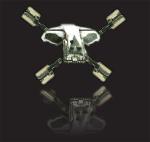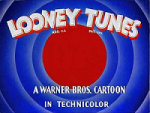If, like you suggest, your MM matches people with 60% win rate, in time they'll get normed to 50%. If like worldt of tank, you team 60% with 40%, in time you'll get 50% for everyone. 50% is meaningless. W/L ratio is not like the age distribution amongst a population. It's only two states, win or lose, and one create the other, so it's symetrical. So assuming infinite time, like you said, everyones W/L ratio would tend to 50%. With or without any matchmaker.
So what's the purpose of matchmaker? It's to provide interesting matches for everyone. Multiple criteria. Team composition, number of players, repartition of skill/experience, number of parties, even language.
I'm not a douche, I'm kind enough to explain that to you. I point out that Hawken's playerbase has been heavily modified at least three time with three events, the worst being steam launch. It's situational awareness in the real world. Whatever you're testing, MMR is a useless stat, so broken that the core playerbase farmed it to the point they're not even able to play the game. You're not a new player, you cant recreate a new user experience. You cant monitor your experience yourself. You're just trying to be a brainy smurf.
In terms of the math you're presenting that's still very wrong, unless we're speaking of truly infinite time where infinity times one win out of every hundred is equal to infinity times 100 wins out of every 100. This is a silly assertion to make, as it literally requires people to play the game forever. Like I said, you are assuming that the statistical average is equivalent to the average of every player.
For any reasonable period of time, the worst player in Hawken is never going to beat the best player. They're not going to beat the second, third, fourth, fiftieth, or three hundredth best either.
They're going to beat someone of equal skill roughly fifty percent of the time, but that pool of people is one, because this is the worst player in Hawken. So since every person playing Hawken is better than them, a lack of matchmaker putting them consistently with people at least near their skill, is going to make the chances of getting those people that this player has a chance of beating in a match together go way way down, and as such, this player is going to almost never win a match.
The same thought process can be applied to the best player, or any in between. In fact, the only people who are likely to have a 50% win loss ratio are people in the 50th percentile. The median gamers - and they, for the large majority of their experience are going to win without any challenge whatsoever, or will get utterly stomped.
Now, the one thing pulling this argument away from the whole truth here is that each team has six players. This will have the effect of averaging things out, but it will only slow the process down. The most likely composition of five other random players is one that will tend toward an average of the average skill of players in the game - meaning from the standpoint of anyone playing the game, they are still going to be the one skewing the balance for or against their teams over time.
This all being said, that's not even close to what the thread is about. Nor is it about recreating new player experience. A chemist doesn't magically become his chemistry set every time he wants to explore, he uses the tools available to him.
My results in the past have overwhelmingly expressed complaints about the grind. That has changed now to some extent, and I would like to see if that has been solved in any measure.
You might be happy to know that I've received far less complaints this time around, meaning capnJosh's pricing modifications seem to have had something of the desired effect.
Currently, the complaints I hear are about not knowing how to play the game, meaning the next issue I will likely stress on the forums will be changing the tutorial.
That is how testing works. One experiments and gathers results, and then shares them with his or her peers.
 Sign In
Sign In Create Account
Create Account








 Back to top
Back to top
































